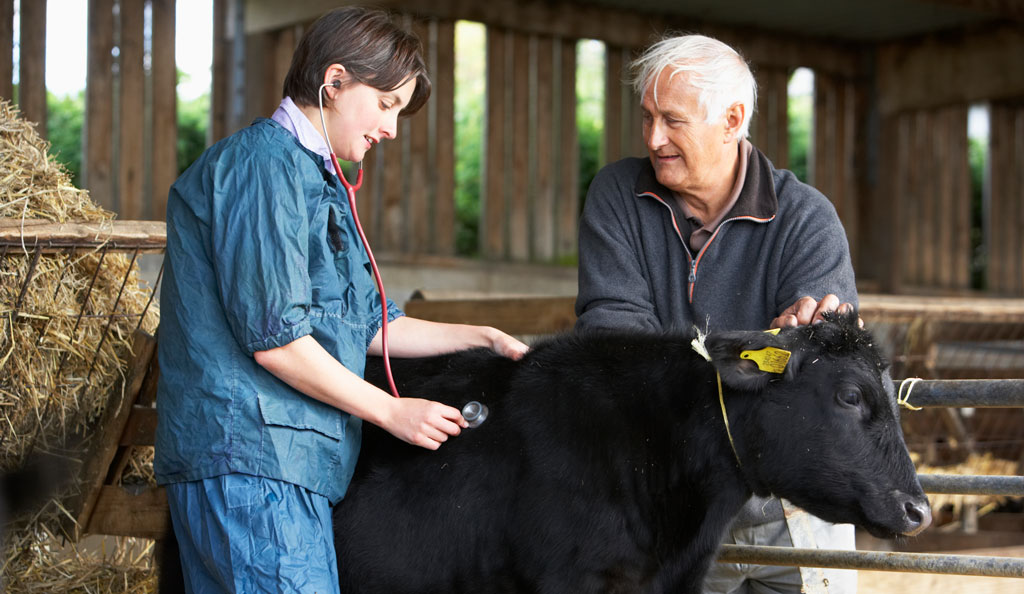
Antimicrobial resistance (AMR) is a serious global public health issue of our time.
Disease-causing bacteria are becoming increasingly resistant to antimicrobial drugs, such as antibiotics, which then become ineffective. As a result, infections persist posing health risks to us all.
"We take for granted that antibiotics will work to treat infections from everyday injuries, such as cuts and scrapes to routine surgery," says researcher Simon Otto. "An increasing number of microbes that infect us and cause disease have become resistant to the antibiotics we once used to fight them."
"We are at risk of moving into the post-antibiotic era, when we can no longer treat even simple infections."
A veterinary epidemiologist and assistant professor in the School of Public Health, Otto applies the concept of One Health to his AMR research. One Health is the concept that human, animal and environmental health are interconnected. "You can't affect the health of one, without positively or negatively impacting another," explains Otto.
This is important because changing interactions between people, animals and our environment can affect the spread of AMR bacteria between humans and animals.
Otto's current research project-Genomic Antimicrobial Stewardship Systems from Evidence-based Treatment Strategies (ASSETS) for Livestock-received funding with the goal of accelerating effective diagnostic testing for livestock producers to improve the use of antibiotics to treat infections in cattle, swine, poultry and other food animals using genomics.
Otto explains that using genomics means that an animal's DNA, from a nasal swab, is sequenced to identify pathogens and inform the best way of treating livestock.
"This project will change the face of diagnostic testing in livestock production in Canada," says Otto. "Current tests for AMR in livestock take five to seven days to get results. This means that most antimicrobial drugs are prescribed to livestock with only clinical information, but not diagnostic test results. Our genomic strategy will provide those results to veterinarians and producers in less than 24 hours."
Unnecessary and overexposure to antibiotics is contributing to AMR, says Otto."Not all infections can be effectively treated with antibiotics," he warns. "A person with a virus, a cold for example, will not benefit from their use."
Otto says the same applies to using antibiotic use in animals. Identifying which bacteria are resistant and which can be treated effectively minimizes unnecessary use of antibiotics and can prevent increased resistance. He stresses, though, that using antibiotics to treat bacterial infections in animals is necessary for humane livestock management practice.
"Treating bacterial infections in animals responsibly with antibiotics is important for their health and welfare."
The researcher is confident that with proper stewardship of antibiotic use in livestock management there is no argument for avoiding the use of antibiotics in animal food production. "There is a misconception that food labelled 'antibiotic-free' is healthier for us, when there is little evidence to support this," states Otto.
In fact, he says that Canadian regulations ensure animals have virtually no antibiotics in their system when being processed to enter our food chain. According to Otto, there is near total compliance with these regulations in conventional production systems in Canada.
Assistant Professor Simon Otto is co-principal investigator of the Genomic ASSETS for Livestock project, working alongside a multidisciplinary team of researchers from the University of Saskatchewan, including co-principal investigator Cheryl Waldner of the Western College of Veterinary Medicine, and other team members from Prairie Diagnostic Services and Agriculture and Agri-Food Canada.
Genomic ASSETS for Livestock was awarded $2.5 million from Genome Canada, administered by Genome Prairie. Additional co-funding partners including the Government of Saskatchewan, Genome Alberta, Agriculture and Agri-Food Canada and the Canadian beef industry have committed more than $3.1 million to the project.
Sources:
World Health Organization
Review on Antimicrobial Resistance